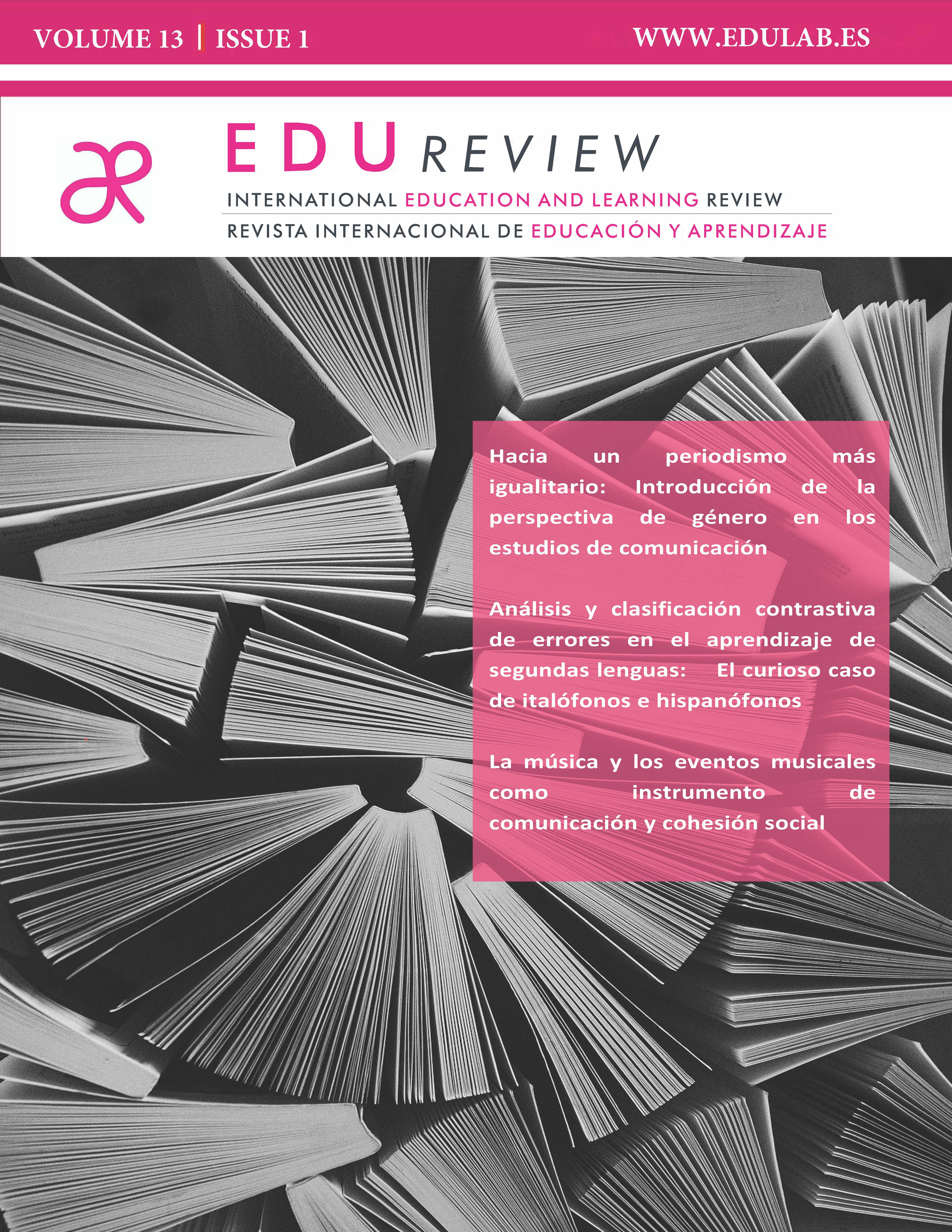Oral Argumentation Skills Development Through Project-Based Learning
Teaching Perspectives
DOI:
https://doi.org/10.62701/revedu.v13.5439Keywords:
Oral argumentation, Poject-based learning, Higer education, Communication skills, Teacher developmentAbstract
This study examines the development of oral argumentation skills through Project-Based Learning (PBL) from a teaching perspective. It focuses on the course “Learn to Defend Your Ideas: Decision-Making Game,” implemented since 2021 at Universidad Santo Tomás. This workshop-style course promotes critical thinking, problem-solving, and persuasion through argumentative techniques in academic contexts. Based on Larraín et al. (2021), the study emphasizes the importance of linking disciplinary knowledge with the teaching of argumentation, as both processes reinforce each other. Following preliminary inquiry into instructors’ perceptions, the course was redesigned to incorporate PBL as a teaching strategy. This methodological innovation enhanced student engagement, improved formative assessment, and offered a more practical and contextualized approach to oral argumentation. As a result, it fostered the development of essential communicative competencies for both academic and professional settings
Downloads
Global Statistics ℹ️
|
478
Views
|
222
Downloads
|
|
700
Total
|
|
References
Álvarez, T. (2010). Competencias Básicas en escritura. Octaedro.
Borroto CR, Aneiros RR. Investigación-acción. (Consultado 16/3/07). Resumen y revisión de Kemmis S. Action Research, 1992. Escuela Nacional de Salud Pública. (Consultado 16/3/07). Disponible en URL http://www.sld.cu/galerias/doc/sitios/infodir/39_investigacion_accion.doc
Bustos Gisbert, J. (2013). Arquitextura. Fundamentos Discursivos del Texto Escrito en Español. Ediciones Universidad Salamanca.
Cobos Pérez, N. A., Gualdrón Pinto, E., & de la Barrera Correa, A. (2021). La argumetación oral para el desarrollo del pensamiento crítico en el aula. Bol.redipe, 10(9), 48-65. Grupo de investigación EDUMATEST, Universidad de Pamplona, Colombia. https://revista.redipe.org/index.php/1/article/view/1426 DOI: https://doi.org/10.36260/rbr.v10i9.1426
Córdova Jiménez, A., Velásquez Rivera, M., & Arenas Witker, L. (2016). El rol de la argumentación en el pensamiento crítico y en la escritura epistémica en biología e historia: aproximación a partir de las representaciones sociales de los docentes. Alpha (Osorno), (43), 39-55. https://dx.doi.org/10.4067/S0718-22012016000200004 DOI: https://doi.org/10.4067/S0718-22012016000200004
Decreto 67 de 2018 [con fuerza de ley] Aprueba normas mínimas nacionales sobre evaluación, calificación y promoción y deroga los decretos exentos n° 511 de 1997, n° 112 de 1999 y n° 83 de 2001, todos del Ministerio de Educación. 20 de febrero de 2018. https://bcn.cl/2f7jk
Figueroa-Vargas, A., & Donoso Reyes, F. C. (2021). Argumentación y formación inicial docente: tensiones curriculares y didácticas en la educación terciaria. https://doi.org/10.1590/SciELOPreprints.5478 DOI: https://doi.org/10.1590/SciELOPreprints.5478
Fundación Chile. Cecilia Sotomayor, Carla Vaccaro y Antonia Téllez. (2021). Aprendizaje Basado en Proyectos, un enfoque pedagógico para potenciar aprendizajes. Obtenido de educarchile.cl: https://www.educarchile.cl/recursos-para-el aula/aprendizaje-basado-en-proyectos-un-enfoque-pedagogico-para-potenciar-los
Larraín, A., Brasi, Leandro De, Calderón, M., & Calzetta, A. (2021). Creencias docentes acerca de la enseñanza de la argumentación en el ciclo básico de formación. Formación universitaria, 14(1), 99-110. https://dx.doi.org/10.4067/S0718-50062021000100099 DOI: https://doi.org/10.4067/S0718-50062021000100099
Lucci, M.A. La propuesta de Vygotsky: la psicología socio-histórica. Profesorado. Revista de currículum y formación del profesorado, 10, 2 (2006)
Mineduc. Unidad de Curriculum y Evaluación. (2019). Metodología de aprendizaje basado en proyectos. Obtenido de curriculumnacional.cl:https://www.curriculunacional.cl/614/articles- 140166_recurso_pdf.pdf
Salamanca, I. y Badilla, M. G. (2020). Estudio de marcos referenciales de habilidades para el siglo XXI: un modelo eco- sistémico para orientar procesos de innovación educativa. Synergies Chili, (16), 33-48. https://gerflint.fr/Base/Chili16/salmanca_badilla.pdf
Sánchez, J. (2016). Qué dicen los estudios sobre el Aprendizaje Basado en Proyectos. Obtenido de www.estuaria.es: https://www.estuaria.es/wp-cotent/uploads/2016/04/estudios_aprendizaje_basado_en_proyectos1.pdf
Serrano de Moreno, S. (2008). Composición de textos argumentativos: Una aproximación didáctica. Revista de Ciencias Sociales, 14(1), 149-161. Recuperado en 30 de mayo de 2023, dehttp://ve.scielo.org/scielo.php?script=sci_arttext&pid=S131595182008000100013&lng=es&tlng=es
Thomas, J. W. (2000). A review of project-based learning. The Autodesk Foundation. Recuperado de https://www.bie.org/object/document/a_review_of_project_based_learning
Vygotsky, l. (2009). El Desarrollo de los Procesos psicológicos Superiores. Crítica.
Downloads
Published
How to Cite
Issue
Section
License
Copyright (c) 2025 Authors retain copyright and transfer to the journal the right of first publication and publishing rights

This work is licensed under a Creative Commons Attribution-NoDerivatives 4.0 International License.
Those authors who publish in this journal accept the following terms:
-
Authors retain copyright.
-
Authors transfer to the journal the right of first publication. The journal also owns the publishing rights.
-
All published contents are governed by an Attribution-NoDerivatives 4.0 International License.
Access the informative version and legal text of the license. By virtue of this, third parties are allowed to use what is published as long as they mention the authorship of the work and the first publication in this journal. If you transform the material, you may not distribute the modified work. -
Authors may make other independent and additional contractual arrangements for non-exclusive distribution of the version of the article published in this journal (e.g., inclusion in an institutional repository or publication in a book) as long as they clearly indicate that the work was first published in this journal.
- Authors are allowed and recommended to publish their work on the Internet (for example on institutional and personal websites), following the publication of, and referencing the journal, as this could lead to constructive exchanges and a more extensive and quick circulation of published works (see The Effect of Open Access).













